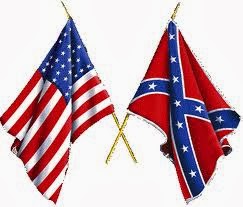Sherman's Atlanta Campaign and March to Sea
General Sherman waited for approval to proceed with his march for two months in Atlanta. During the two months General Sherman ordered all of the Atlanta citizens to leave Atlanta so innocent citizens would not get killed and families would not get in his way. Lincoln was having issues with the election of 1864 and the Union needed to make some good progress so the Atlanta Campaign was put in to fix these problems. Lee ended up replacing Johnston because he was not aggressive enough and he was to calm about the war. After Atlanta's capture the Northern support of war increased and Lincoln's election was ensured.Sherman's march was very risky but he was very determined to tire out the Georgians and make them sick of war. His plan was meant to make the Georgians quit war. During Sherman's march many railroads were destroyed, the confederates were thrown off guard, and Lincoln strengthened his chance at the election.
 |
| http://www.ducksters.com/history/shermans_march_to_the_sea.php |














